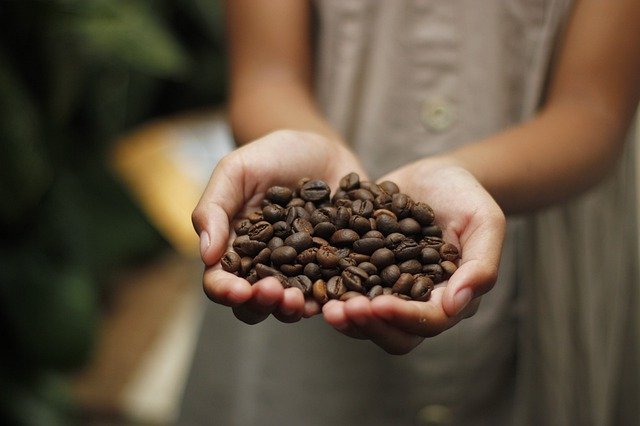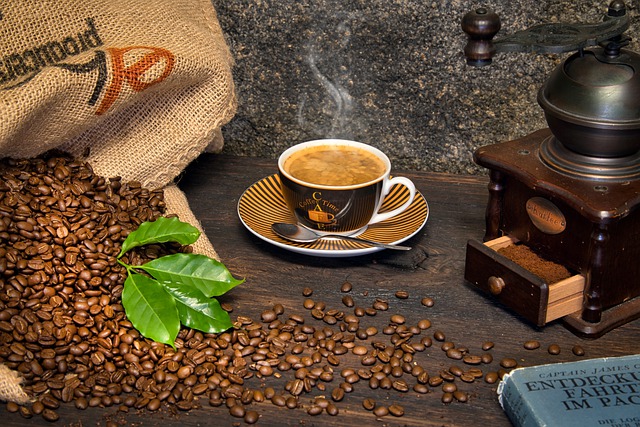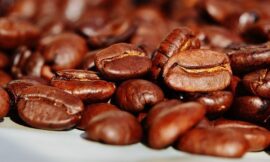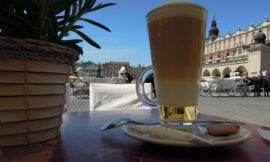Exactly what is Kona Coffee?
A variety of coffee beans are available for purchase, each with its own distinct flavor. Arabica, Robusta, Liberica and Excelsa are the four basic kinds that have been identified as being worth attempting by a number of sources. Arabica is the most commonly spoken and recognized of these languages, and it accounts for the majority of their use.
Arabica coffee beans, on the other hand, account for about 60% of all coffee beans produced worldwide. Why? English:
Arabica plants are easy to grow and maintain since they thrive at high elevations with plenty of rainfall (thus their popularity in the mountainous, tropical parts of South America), and they provide excellent coffee with a rich, nuanced flavor.
Robusta beans are the most well-known and commercially manufactured of the coffee beans, and they are also the most broadly distributed in terms of distribution.
This kind of coffee is hardy and easy to cultivate, and it has double the amount of caffeine found in Arabica varieties.
Then there are the smoky, somewhat aromatic Liberica beans, as well as the Excelsa bean, which is a descendant of the Liberica variety (which, incidentally, tastes quite different from the Liberica beans).
A partial picture is presented by these four beans on the other hand. A different kind of bean, as well as various flavors, may be explored and enjoyed.
As Kona beans become more and more popular in Hawaii, they become more difficult to get but are well worth every cup of coffee you manage to prepare with them.
What Is Kona Coffee and How Does It Work?
On the island of Hawaii’s Big Island, coffee from Kona is obtained from the Kona Moku (region), where the environment is particularly favourable to bean cultivation.
In addition to having beautiful, green hills with dark, extremely productive soil, plenty of blue sky and sunshine, Hawaii also gets as much rain as it does sunlight. Pleasant and comfortable, but not too hot or dry, this weather is perfect.
Hawaii is also a volcanic island, which means that many coffee farms are situated atop volcano craters like as Hualalai and Mauna Loa, both of which are famous tourist destinations in their own right.. Because of this, the black soil becomes rich, full of nutrients, and strengthened by the earth and the shadow, and it becomes very productive.
All of this contributes to the creation of an unforgettable cup of coffee.
A unique characteristic distinguishes Kona beans, which are grown in almost optimal conditions and produce beans of high quality. Traditional Kona coffee manufacturing is distinguished by its gentle, sweet, and fruity taste profile.
Because Kona coffee is roasted correctly and to the appropriate degree, the sweetness and fruitiness will be given early in the cup. After then, the lower tones become more prevalent as the roast progresses.
A nutty flavor and perhaps a hint of spice will most likely come through in most circumstances. As the sweetness and fruitiness of the coffee begin to decrease, the body and depth of the coffee will begin to emerge from the roasting chamber.
The optimal roast will achieve a satisfactory balance between the two, yielding just the right amount of each.
Without a doubt, it is unreasonably expensive, especially if you go for 100 percent Kona coffee beans, but there is no getting past this fact. Nonetheless, if you are looking for the best, it is definitely worth the money to spend more. It doesn’t matter whether you just use it on weekends or only on special occasions; you’ll be opening your eyes to a whole new world of coffee delights.
When buying Kona coffee, is it better to buy it online or in-store.
To be really honest, unless you happen to live near a very outstanding speciality roaster, you will nearly always be able to get coffee online. The item may be available at a high-end farmer’s market or a very trendy gourmet coffee establishment, but it is difficult to come by anywhere else.
In most cases, you will need to use the great world wide web to find what you are looking for.
Coffee from Kona is available for purchase from a number of online suppliers, including Amazon and other major retailers. If you can find a trader who can ship it to your door with a vacuum seal, which will keep it fresh until you’re ready to use it, that should be no problem.
What you should watch out for are the items listed below.
In light of the high prices that Kona coffee attracts, it is only natural for con artists to take advantage of the current circumstances. The following is an area in which you must proceed with caution: If there are a huge number of reviews, you should be OK. If there aren’t many, you should be fine. Keep your distance if anything doesn’t look quite right.
It is also common practice to sell Kona coffee as part of a blend, with 10 percent Kona and 90 percent another kind of Arabica from Colombia or Brazil, in order to maximize the value of the precious commodity by making it last longer.
If the flavor isn’t drowned out by the 90 percent added, and unless it’s a particularly precisely selected Arabica, the outcome is often just a pricey Arabica that tastes strikingly similar to the stuff you can buy from your local grocery store for a few dollars a bag.
Make a note of any foods or beverages labeled with the phrase “authentic Hawaiian flavor” that do not have any proven link to Hawaii or Kona. For the way they describe their coffee, they are not vulnerable to legal repercussions. The fact that they are incorrect does not make them right – they do not sell Kona and are most likely taking advantage of unwary buyers.
Consider purchasing beans from companies who acquire their beans straight from Hawaii. Hawaii’s regulations, on the other hand, is fairly stringent when it comes to what may be advertised as “Kona coffee.”
If a company is importing it straight from the Big Island and selling it as Kona, there is a very good chance that they are delivering the authentic product.
The most well-known Kona coffee brands are listed below.
It’s certainly worth your time if you’re looking to buy Kona coffee online from one of the companies mentioned below. They supply authentic coffee that has been expertly roasted, and all of their items are readily purchased via their website.
However, this is by no means a comprehensive list; there are other well-known brands to choose from. All of the outstanding qualities of Kona coffee in its many forms are exemplified by them.
Several are pure blends (and hence pricey! ), while others are skillfully blended with high-quality Arabica, making them substantially more cost-effective while still delivering a pleasant coffee taste.
 Is it possible to reheat cold brew coffee?
How To Make Excellent Coffee With A Moka Pot
What Is A Pressurized Portafilter, and How Does It Work?
Organic Coffee’s Advantages Over Non-Organic Coffee
Is it Possible to Freeze Coffee Beans?
How Can A Shopaholic Save Money?
Is it possible to reheat cold brew coffee?
How To Make Excellent Coffee With A Moka Pot
What Is A Pressurized Portafilter, and How Does It Work?
Organic Coffee’s Advantages Over Non-Organic Coffee
Is it Possible to Freeze Coffee Beans?
How Can A Shopaholic Save Money?
The Classic of the Hawaiian Islands
Hawaiian Isles Kona Coffee Co. Kona Classic Ground Coffee, Medium Roast, 10 ounce bag Hawaiian Isles Kona Coffee Co. Kona Classic Ground Coffee, Medium Roast, 10 ounce bag
Hawaiian Isles Classic coffee is the first blended Kona coffee on our list, and it is also the most expensive. Not to mince words: there are far better, tastier, and smoother coffees available on this menu. If you choose one of the pure Kona alternatives, you will get what you paid for – but you will be required to pay for it.
Hawaiian Isles Classic is far more cheap than other of the trashier products on the market, yet it successfully balances its Kona and Arabica coffees, bringing out some of the most distinctive aromas of each kind. Kona coffee accounts for 10% of the total; the remainder is manufactured from superior Arabica.
It is medium roasted, which should make it accessible to everyone, albeit it is on the stronger side — I myself like this, but I believe that most people will prefer to use one tablespoon per cafetiére instead of the suggested two, or create single shot espresso beverages.
Normally, I would be hesitant to put mixtures on a list such as this one. Some of them, on the other hand, are really effective. This is an example of such a mix; rather than Arabica being made worse by the presence of Kona, this blend being made better by the presence of Arabica and Kona.
For those seeking an exceptional cup of coffee with a bit of Hawaiian flavor but who do not want to break the budget, this is an option definitely worth exploring.
Royal Kona Royal Kona 100 percent Hawaiian Kona Coffee, Ground, Private Reserve Medium Roast – 7 Ounce Bag Royal Kona Royal Kona 100 percent Hawaiian Kona Coffee, Ground, Private Reserve Medium Roast – 7 Ounce Bag
We have another pricey option in Royal Kona – in fact, it is one of the most expensive options on our list. A little bit more than forty dollars should bring you around 7 ounces of high-quality, ground Kona coffee. Their slogan is “coffee fit for royalty,” which perfectly describes Royal Kona’s offerings.
It is, of course, 100 percent genuine Kona coffee, which is to be expected at this price, given the quality of the beans.
Royal Kona’s coffee is pleasantly light and delicious, bouncing over the tongue rather than settling into a heavy, astringent sensation on the tongue and palate. It’s officially a medium roast, but it seemed more like a lighter, blonder roast to me, with lots of flowery, fruity, and citrussy characteristics to complement the roasting process.
With no bitterness, acidity, or lingering residue at the top of the tongue, simply bright, clean, refreshing high notes with a hint of a deeper, earthy foundation underlying it all, this tea is a delight to drink.
In my opinion, it perfectly encapsulates the image of the natural Hawaiian environment, with its vibrant tastes exploding with life while yet being firmly planted in the earthy, volcanic soil.
Freshness is also always ensured when it comes to Royal Kona’s specialty coffee. They don’t roast it until after they’ve gotten your order, which is wonderful. In order to provide you with the freshest, richest flavor possible without actually consuming it in Hawaii, this roasted coffee is wrapped in a sealed bag and mailed directly to your home or office.
Hawaiian Gold Hawaiian Gold Kona Medium Roast Gourmet Blend Whole Bean Coffee – 2 Lb Bag Hawaiian Gold Kona Medium Roast Gourmet Blend Whole Bean Coffee – 2 Lb Bag (Pack of 2)
Hawaiian Gold is yet another blended coffee that combines high-quality Kona with other Arabica coffees cultivated in high-mountain regions. This implies that for the price of around 7 ounces of Royal Kona, you will get approximately four pounds of coffee. Yes, there is clearly a quality decrease – so much so that you can more legitimately consider them two unique beverages rather than two different kinds of the same – but it obviously goes a lot farther than that as well.
This will always be the cost of doing business.
Hawaiian Gold, like Hawaiian Isles Classic, at the very least, does a good job of it. Theirs is a gourmet mix with a medium roast that is really delicious. It mixes the vibrancy of high-quality gold Kona coffee with the depth and balance of the Arabica beans used in their recipe to create a unique and delicious cup of coffee. It has a silky texture while yet being strong and full-bodied.
Infused with a brightness and zest, it imparts an exotic, robust character that contrasts well with the profoundly rich, almost indulgently smooth tastes that reach you first with each sip. The lighter notes emerge gently, rising above the rest of the notes to make each cup of tea a complete treat.
There is little to no acidity, and there is no aftertaste either. It is lighthearted and transitory. Lovely.
Lion Coffee is a specialty coffee roaster based in Seattle, Washington.
The Lion Coffee Company’s Kona coffee is 100 percent pure and whole bean in a 7-ounce bag (Pack of Two)
Lion Coffee is arguably the most competitively priced pure Kona coffee that I have encountered, striking a wonderful balance between quality and pricing that is hard to beat. The coffee is 100 percent pure Kona from the Big Island of Hawaii, yet it is much less expensive than other, comparable brands, like as Royal Kona, which are more expensive.
Despite this, Lion Coffee is smooth and consistent, with a distinct aroma of well-roasted coffee. It also tastes rather fresh. This implies that the quality of each cup is the same (and consistently delicious).
Lion Coffee describes its Kona coffee as medium roast, which I believe to be incorrect.
When compared to some of the lighter blends on this list, this one tastes significantly more like a deeper roast, with a much darker flavor and strong bitter undertones, rather than some of the lighter blends on this list. This is something I particularly like — I can appreciate flowery, fruity coffee that dances on the tongue, but my heart will always belong to dark roasts that strike you right between the eyes and in the stomach.
Use your own discretion in this situation. Kona coffee from Lion Coffee would likely appeal to those who want bitter, powerful, strong coffee that lingers in the tongue for a long time after drinking. If it doesn’t work, try a different kind.
Lion Coffee Kona mixes, made with excellent, hand-picked Arabica beans, are also available for purchase.
Despite the fact that I have not personally tasted it, I have heard nothing but positive things about it — given pure Kona’s predisposition for deep, bluntly bitter tastes, I would expect that this kind of combination works wonderfully well, while also saving you a little more money.
Even though it isn’t polished (for that, go for more costly products), it is delicious and fits certain palates nicely.
The Don Francisco’s Kona Blend (24 Count) Recyclable Single-Serve Coffee Pods are compatible with Keurig K-Cup Brewers and are made by Don Francisco’s.
While I appreciate Don Francisco’s commitment to quality, I’m not a great fan of their K-cup method to coffee preparation, which they use with their Kona blend. It is, without a doubt, convenient, but it does not always provide the greatest outcomes, and the quantity of packaging trash they cause is difficult to swallow. They do, however, have a role in society.
I would advise everyone who wants to drink coffee to use ground coffee whenever feasible. It is, however, always useful to have a few of pods on hand in case you are in a rush and have a computer that is compatible with them.
I would suggest that those two pods of Don Francisco’s Kona coffee be used instead. Firstly, Don Francisco has teamed with Terracycle for a recycling initiative that makes Don Francisco’s coffee pods recyclable via the website terracycle.com, which is accessible through the Don Francisco website.
The coffee itself is a nice combination of the customary 10 percent Kona beans, which are topped up with high-quality Arabica beans from a reputable source. The final brew you get is far from the greatest Kona experience available, but it is still quite nice, and it is far less expensive than pure blends of Kona coffee.
When it comes to taste, the espresso is black and rich, while the crema is dependably smooth and even a bit creamy, depending on the machine you use. If you choose to keep it warm in a travel cup or flask, the taste will last for many hours, making it a fantastic choice to bring to work with you.
Whenever possible, choose pure Kona if you have the means to do so. It is far superior to almost any other kind of coffee available. Keep it in a vacuum-sealed bag and use it on weekends or special occasions, or use it as a daily indulgence if you like. You will not be disappointed in your decision to spend the money necessary to make it yours!
If not, or if you’re just searching for a boosted Arabica, go with caution: there are a number of sub-par products out there that employ sub-par beans, both Arabica and Kona, so proceed with caution and do your research. As a result, although the items on this list do not combine their beans in a harmonious manner, you will get something that isn’t exactly Kona or Arabica, but is very wonderful nevertheless.





